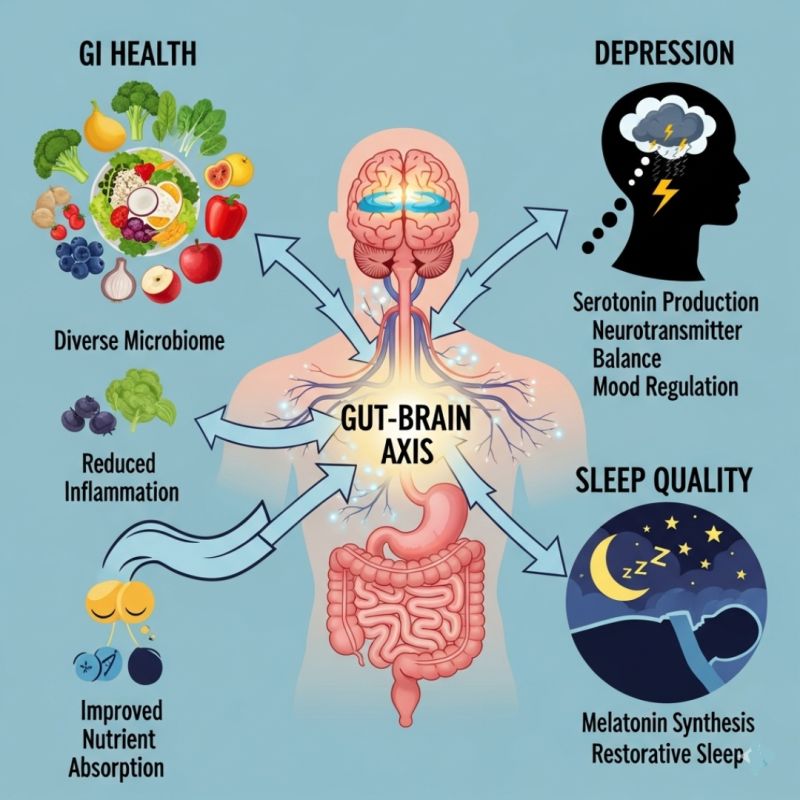Study Shows GI Diseases Are Significantly Associated With Sleep Disorders
Will Loiseau
9/12/20251 min read


Ever feel like your gut, sleep, and mood are all in a chaotic dance? You're not imagining things.
An interesting study from the journal BMC Gastroenterology looked at a decade of U.S. health data. The findings are a powerful reminder of how interconnected our bodies are:
The Link: People with gastrointestinal (GI) issues are significantly more likely to have sleep problems.
The Bridge: Depression partially mediates this relationship. This suggests a chain reaction: gut issues can contribute to depression, which then disrupts sleep.
The Big Picture: This research really reinforces that treating one symptom in isolation often fails because the human body works as a single, integrated unit.
So, what can we do? The study indirectly points to a crucial factor: diet. Fresh fruits and vegetables are key to feeding the good bacteria in our gut, which can positively influence our brain, mood, and sleep.
When the gut is healthy: it produces serotonin that regulates your mood and later converts into melatonin. Melatonin tells your body when to fall asleep, helps you fall asleep faster, and promotes longer sleep (or quality rest).
When the gut is unhealthy: inflammation is triggered which interferes with the nervous system and raises cortisol (the stress hormone that can keep your brain wired and prevent you from winding down).
It's a simple reminder that a holistic approach to wellness isn't just a trend - it's backed by science. One small change you make to your diet can have a positive ripple effect on your overall health.
Start Your Transformative Journey Today
© 2026 True Iron Will LLC. All Rights Reserved .
Mailing Address:
1317 Edgewater Drive #1297
Orlando, FL 32804
TrueIronWill1@gmail.com
